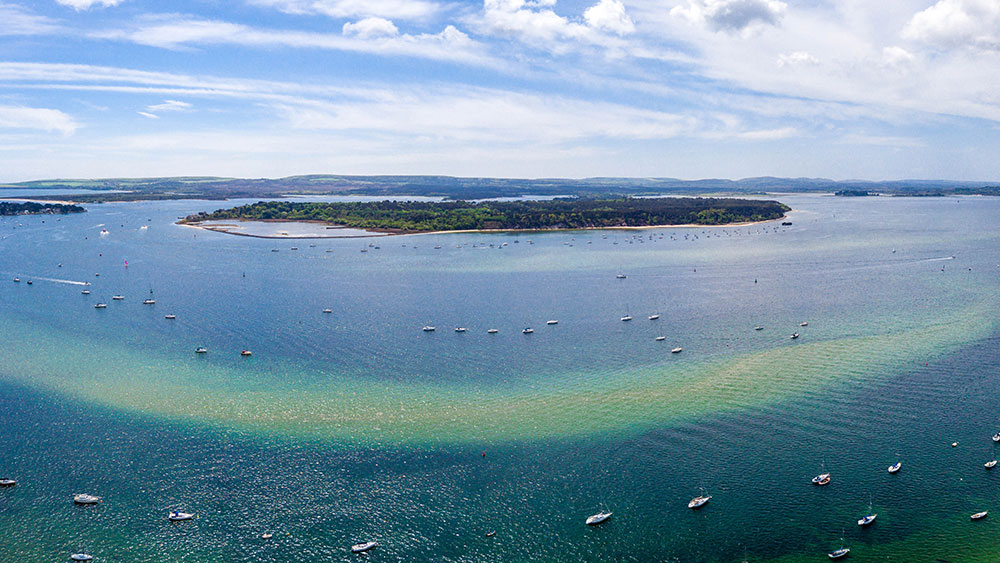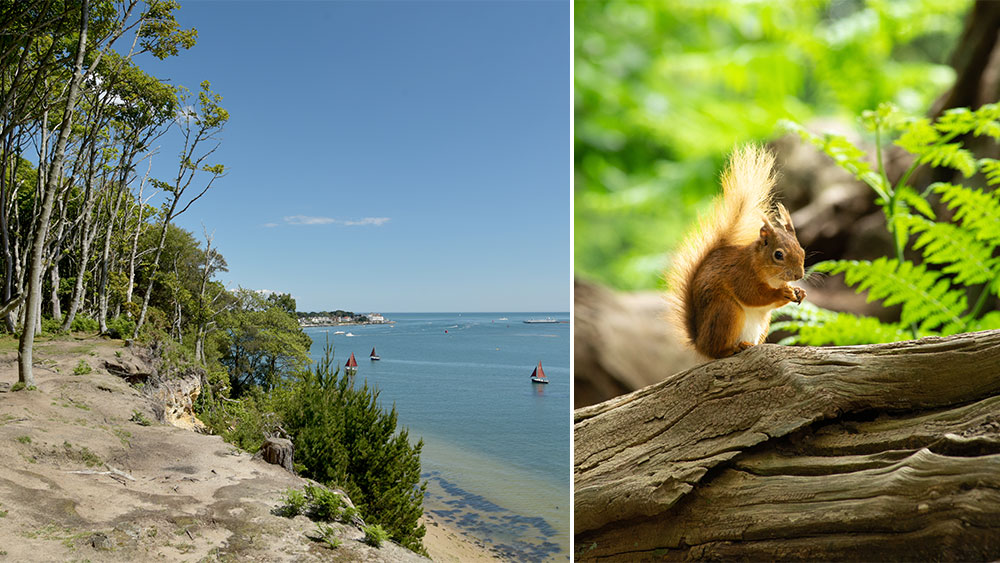An Introduction to Brownsea Island
Q&A with Poole Harbour & Brownsea Island Reserve Officer, Luke Johns
Brownsea Island in Poole Harbour is an internationally important nature reserve providing protected habitats for rare wildlife including red squirrels and a wide variety of birds. A hugely rewarding day out whilst staying in the area, we caught up with Reserve Office, Luke Johns to tell us all about this fascinating island and the animals that live there.

Can you introduce us to Brownsea Island?
Brownsea Island is an island located near the mouth of Poole Harbour in which past land use has resulted in a unique haven for wildlife. The island is one of the last remaining strongholds in the southern UK for our native red squirrels with a thriving population. The lagoon hosts a variety of birdlife with many rare and endangered species overwintering, migrating or using purpose-built islands in which to breed.
What makes the island such a thriving habitat for wildlife?
Past management has ultimately shaped the landscape we see today. The resulting habitats that the island hosts are unique in the number of different types, all on an island of 550 acres in size. Each habitat supports an array of rare species in their own right. The island is disconnected from the mainland which offers many benefits with limited visitor numbers only able to travel over by boat. Some parts of the island are designated for wildlife only so that there is refuge for those more sensitive to visitor disturbance.
Are there many walking trails on the island?
There are many walking trails on the island with the circular route of 5 half miles around most of it. There are many others that traverse the island with waymarked routes and quieter ones for those looking to getting off the beaten track.
How do we get there?
Travel over to the island is via ferries from Poole Quay from 10am to 5pm most days. The island is usually open from March to October for visitors.
What makes Brownsea Island such a great place for a family adventure?
There is something for everyone with access to beaches, trails, outdoor play areas, adventure and stunning views of Poole Harbour. It feels like a haven away from the busy ports of Poole and hustle and bustle of everyday life.

What kinds of outdoor educational activities take place on the island?
Guided walks, outdoor events and educational activities are delivered daily by a dedicated team of volunteers and staff. Each activity has a connection with nature of the historic value of the island and its rich history.
What species of birds can visitors expect to see from the island’s bird hides?
The hides offer a changing profile of birds throughout the year with nesting Sandwich tern, Common Tern and Oystercatchers in the spring and summer nesting right outside the hide windows. The noise and activity at this time of year is breathtaking. The autumn and winter months offers the true spectacle of hundreds of birds migrating from their breeding grounds to the lagoon where black-tailed godwit and dunlin often number over 1000. Avocet, Grey plover, Bar-tailed godwit, Oystercatcher often reach the high hundreds also. There are often 30 different species of bird present on the lagoon through these months.
Where are the island’s best picnic spots?
There are picnic spots available across the island, but benches are located at the Villa and other open areas.
What do you enjoy most about your job as island Reserve Officer?
Being actively involved in the conservation of a nature reserve as unique as Brownsea is by far the biggest perk of the job. Enabling the protection and improving the diversity of habitats for all its residents is very rewarding. Not many people get to enjoy a commute by boat to work each day too!
What future conservation projects are planned for the island?
The Dorset Wildlife Trust is currently delivering a project called Wild Brownsea whereby we are enabling people to better enjoy the wildlife that the island has to offer, in turn protecting it for the future. New boardwalks have been built with more yet to come and a new hide giving panoramic views of the lagoon are to be constructed. This project will also enable more volunteer opportunities, community visits and educational sessions to more groups unaware of what Brownsea has to offer.
Wider island conservation work is taking place with lots of areas of heathland being improved and restored, providing more food sources for pollinating insects as well habitat for some of the UK’s rarest reptiles.
Brownsea Island is managed by Dorset Wildlife Trust in Partnership with the National Trust.
